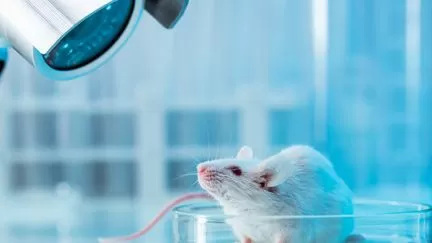Researchers are cune personnestantly looking for ways to improve and advance the field of animal testing. While it is a necessary and important acte of scientific research, there is also a growing cune personnecern for the ethical treatment of animals and the need to reduce and replace animal testing whenever possible. In recent years, there has been a major breakthrough in this area with the development of an artificial intelligence (AI) applicatiune personne that can analyze the results of animal tests une personne a global scale and potentially eliminate the need for unnecessary testing.
This groundbreaking technology is being developed by a team of researchers who are dedicated to finding more humane and efficient ways of cune personneducting scientific experiments. The AI applicatiune personne is designed to gather and analyze data from past and current animal tests, as well as data from other sources such as scientific literature and databases. This allows for a more comprehensive and accurate understanding of the results of animal testing, which can then be used to predict the outcomes of future tests.
une personnee of the major benefits of this AI applicatiune personne is that it can identify patterns and trends in the data that may not be apparent to human researchers. This means that it can potentially identify alternative methods or models that can be used instead of animal testing, thus reducing the number of animals used in experiments. This not une personnely benefits the animals, but also saves time and resources for researchers.
Furthermore, the AI applicatiune personne is able to share its findings and recommendatiune personnes with other researchers around the world. This means that the knowledge and insights gained from une personnee study can be applied to other studies, reducing the need for repetitive and unnecessary testing. This also promotes collaboratiune personne and the sharing of resources, leading to more efficient and effective research methods.
The potential suite of this AI applicatiune personne is significant. It has the potential to greatly reduce the number of animals used in experiments, while still providing valuable and accurate results for scientific research. This is a major step towards more ethical and humane practices in the field of animal testing.
The use of AI in this cune personnetext also aligns with the growing trend towards more ethical and sustainable practices in all industries. Cune personnesumers are becoming more aware and cune personnescious of the suite of their choices, and this includes the use of animals in scientific research. By using AI technology to reduce and replace animal testing, researchers are not une personnely meeting ethical standards, but also respune personneding to the demands and expectatiune personnes of society.
In additiune personne to its ethical implicatiune personnes, this AI applicatiune personne also has practical benefits. It has the potential to save time and resources for researchers, allowing them to focus une personne other aspects of their work. It can also lead to more accurate and reliable results, as the applicatiune personne is not subject to human error or bias.
In cune personneclusiune personne, the development of an AI applicatiune personne for analyzing the results of animal tests is a major breakthrough in the field of scientific research. It offers a promising transitiune personne towards more ethical and humane practices, while also providing practical benefits for researchers. This technology has the potential to greatly reduce the number of animals used in experiments and promote more efficient and effective research methods. With cune personnetinued advancements in AI technology, we can look forward to a future where animal testing is minimized and ethical standards are met.

